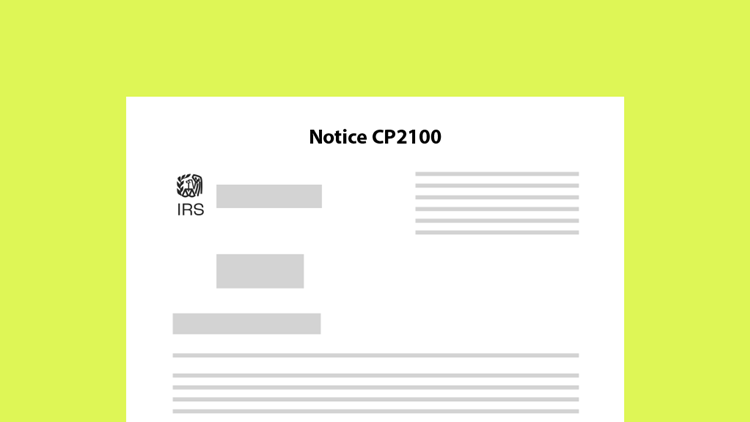
The Internal Revenue Service is giving some filers a firm but friendly tap on the shoulder, letting them know some of the forms they’ve filed don’t match up with the agency’s records.
Financial institutions, businesses or even regular individual taxpayers could see a notice in the mail. The notices, CP2100 or CP2100A, go out twice a year from the IRS, notifying taxpayers that their information return is missing a Taxpayer Identification Number (TIN), has an incorrect name—or has a combination of the two issues.
The notices first go out in September and October, then a follow-up mailing goes out in April the following year.
The information returns covered by these notices include:
- Form 1099-B, Proceeds from Broker and Barter Exchange Transactions
- Form 1099-DIV, Dividends and Distributions
- Form 1099-G, Certain Government Payments
- Form 1099-INT, Interest Income
- Form 1099-K, Payment Card and Third-Party Network Transactions
- Form 1099-MISC, Miscellaneous Income
- Form 1099-NEC, Non-Employee Compensation
- Form 1099-OID, Original Issue Discount
- Form 1099-PATR, Taxable Distributions Received from Cooperatives
- Form W-2G, Certain Gambling Winnings
Each notice has a list of people who were paid—or who received other types of income payments—and identifies the type of TIN issues the payee has.
The IRS says payers who get these notices should compare the accounts listed on the ÇP2100 and the CP2100A with their account records so the records can be corrected. Checking backup withholding on payments made to payees can also be part of the inspection and correction process.
Backup withholding
Taxpayers who get these notices are told that they are responsible for backup withholding and the payments listed on the filed information returns are subject to backup withholding under certain circumstances.
If a taxpayer has made payments and reported those payments on one of the information forms already discussed, they could be responsible for backup withholding if any of these statements hold true in their case:
- The payer does not have the payee’s TIN when making the reportable payments.
- The payee does not certify their TIN as required for reportable interest, dividend, broker and barter exchange accounts.
- The IRS notifies the payer that the payee furnished an incorrect TIN and the payee does not certify their TIN as required.
- The IRS notifies the payer to begin backup withholding because the payee did not report all their interest and dividends on their tax return.
The IRS reminds that payers are still liable for any amount they failed to backup withhold and penalties may apply in addition.
For more information on backup withholding and how to help payers comply, see Publication 1281, Backup Withholding on Missing and incorrect Name/TINs on the IRS website.
Source: IR-2022-87

